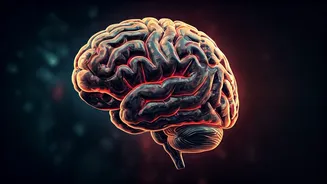Mindfulness Meditation
Mindfulness meditation is a practice that involves focusing on the present moment without judgment. It encompasses various techniques, including focused-attention
meditation, which concentrates on a specific object or sensation, and open-monitoring meditation, which observes thoughts and feelings without getting carried away by them. Research has indicated that regular mindfulness meditation can lead to structural changes in the brain, such as an increase in gray matter density in regions associated with learning, memory, and emotional regulation. Through this practice, people can become more aware of their thoughts and emotions, reducing stress and improving cognitive flexibility. Consistent meditation is like a mental workout, strengthening the neural pathways and enhancing overall cognitive function. It cultivates a sense of calm and clarity, enabling better focus and decision-making capabilities. Moreover, mindfulness can improve working memory, which is essential for tasks like planning and problem-solving, by reducing mind-wandering and distractions. The practice can be incorporated into daily life through guided meditations, mindful breathing exercises, and simply paying closer attention to everyday activities.
Brain Training Games
Brain training games, such as those designed to challenge memory, speed, and problem-solving skills, have become increasingly popular as a means of improving cognitive function. These games often involve activities like puzzles, memory tasks, and strategic challenges. The design of these games is centered around specific cognitive abilities, and playing them regularly may strengthen these skills. As players advance through the levels, the complexity and difficulty increase, pushing the brain to adapt and perform better. Research suggests that these games may enhance working memory, processing speed, and attention span. However, the effectiveness of brain training games is a subject of ongoing debate. Some studies show significant improvements in targeted cognitive skills, while others indicate only limited or specific benefits. The key to maximizing the effectiveness of brain training games lies in the consistency of the training, the level of challenge, and the focus on the specific cognitive domains that one wants to enhance. Furthermore, choosing games that provide feedback and adapt to the player's performance can enhance engagement and effectiveness. A diverse set of games can also train different areas of the brain, leading to more rounded cognitive improvements.
Regular Physical Exercise
Physical exercise is not just beneficial for the body; it's also remarkably beneficial for the brain. Engaging in regular physical activity increases blood flow to the brain, providing it with more oxygen and nutrients. This improved circulation supports the growth of new brain cells, a process called neurogenesis. Exercise also stimulates the release of growth factors, such as brain-derived neurotrophic factor (BDNF), which plays a crucial role in the survival and growth of brain cells. Aerobic exercises, like running, swimming, and cycling, have been shown to be particularly effective in improving cognitive functions, including memory and executive functions. However, the benefits extend beyond aerobic exercise; activities like strength training and yoga may also provide cognitive advantages. Regular physical activity can reduce the risk of cognitive decline associated with aging and may even slow the progression of neurodegenerative diseases. Setting aside time for physical activity can greatly improve mental acuity. A balanced exercise routine, which includes both cardiovascular and strength training components, can provide comprehensive benefits, supporting both physical and cognitive well-being. Additionally, exercise can boost mood and reduce stress, indirectly enhancing cognitive performance.
Learn New Skills
Learning new skills is a powerful way to keep the brain engaged and functioning at its best. Taking on new challenges and acquiring new information stimulates the brain in unique ways, strengthening neural connections and promoting neuroplasticity – the brain's ability to reorganize itself by forming new neural connections throughout life. Whether learning a new language, playing a musical instrument, or mastering a new hobby, the process of learning forces the brain to adapt, create new pathways, and process information in novel ways. This can lead to improved memory, enhanced problem-solving skills, and increased creativity. The brain thrives on novelty and challenge, and the act of learning keeps it stimulated and active. The more diverse the learning experiences, the more well-rounded the cognitive benefits. For example, learning a language can enhance memory and multitasking abilities, while playing a musical instrument can boost spatial reasoning and fine motor skills. Furthermore, learning new skills can foster a sense of accomplishment and improve self-esteem, which, in turn, can contribute to overall cognitive well-being. Continuous learning stimulates the brain and guards against cognitive decline.
Social Engagement
Staying socially active is another important factor in maintaining a healthy brain. Social interaction provides cognitive stimulation through discussions, conversations, and the sharing of experiences. Participating in social activities encourages critical thinking, communication, and emotional processing, all of which are vital for cognitive health. Social engagement also contributes to reducing feelings of isolation and loneliness, factors that can negatively impact cognitive function and increase the risk of cognitive decline. Activities such as joining clubs, volunteering, or simply spending time with friends and family provide opportunities for meaningful interactions and intellectual stimulation. Social interaction challenges the brain and promotes the development of new neural pathways. By engaging in social activities, individuals can stay mentally sharp and connected. Strong social connections foster a sense of belonging and support, which can buffer against stress and other factors that can harm cognitive health. Moreover, social interactions offer opportunities to learn new perspectives and enhance problem-solving skills. Staying connected with others can help keep the mind active and responsive, contributing to overall cognitive resilience.












